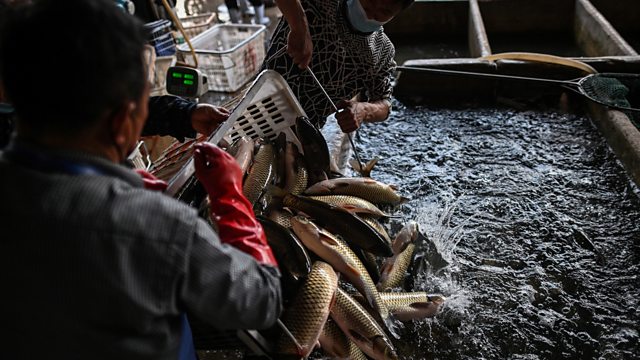Covid-19: Studies conclude Wuhan wet market most likely source of virus
Evidence examined included virus genes, maps and social media activity of early Covid patients across Wuhan, and these conclude that the wet market most likely origin of the virus.
The virus which became known as Covid-19 has claimed over six million lives worldwide, and Friday 11 March 2022 marks the second anniversary of the WHO declaring the spread of the disease a pandemic. When the virus first emerged in the Chinese city of Wuhan, many of the early cases seemed to be linked to a wet market, where live animals, sometimes wild or exotic, are sold for their meat or fur. Another theory was that the virus may have escaped from a Wuhan laboratory. Now, two recent studies have examined evidence including virus genes, maps and social media activity of early Covid patients across Wuhan, and these conclude that the wet market was indeed the origin of what came to be known as Covid-19.
Dr Michael Worobey from the University of Arizona co-authored both studies, and says the cases were linked to the part of the market that sold live racoon dogs and foxes (animals that are susceptible to SARS-CoV-2), and that these were the likely intermediate hosts. He believes the virus did not originate in a lab as it's unlikely it would have spread specifically to the part of the market where the early cases were found. Peter Knights, founder and president of the San Francisco animal charity Wild Aid, says that China has since closed down many such markets and breeding centres, but that Nigeria is the new epicentre of an illegal trade in animals.
Photo: A live animal and seafood market in Wuhan, China March 2020 Credit: Getty Images
Duration:
This clip is from
More clips from World Business Report
-
![]()
Gen Z candidates gaining ground in 2024 US elections
Duration: 04:30
-
![]()
Could a deepfake be used to steal your identity?
Duration: 07:39
-
![]()
K-Pop choreographers join the Korean Wave
Duration: 04:31






